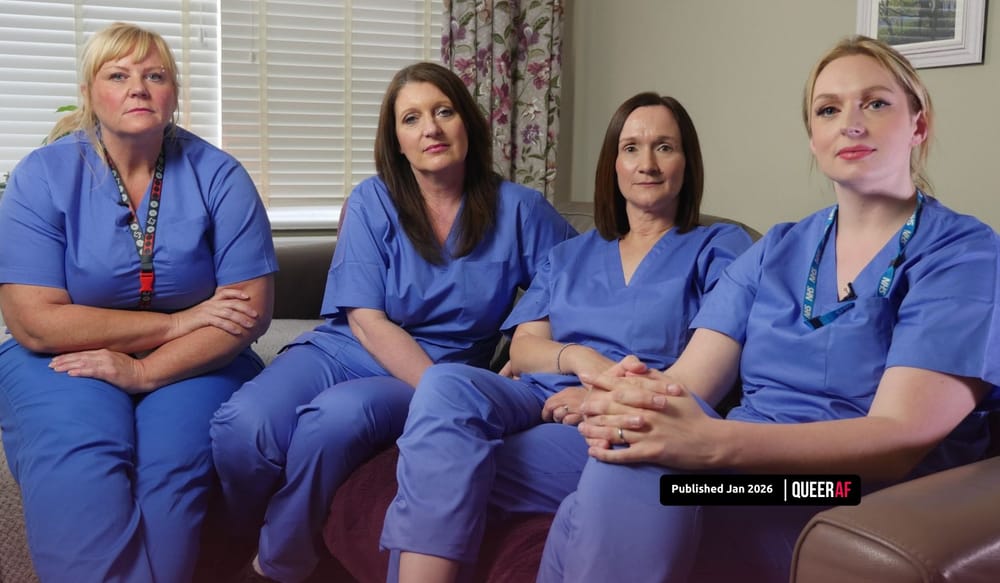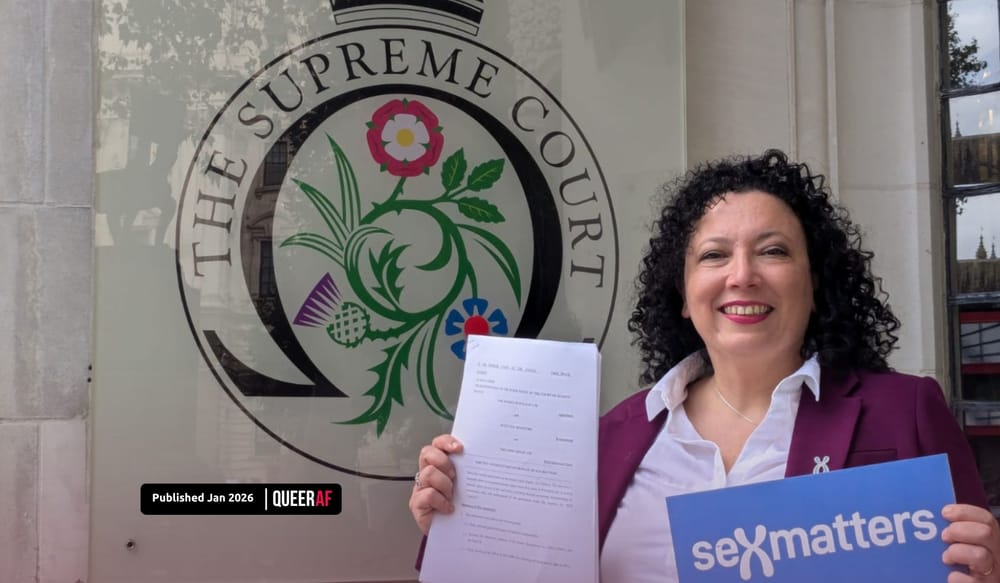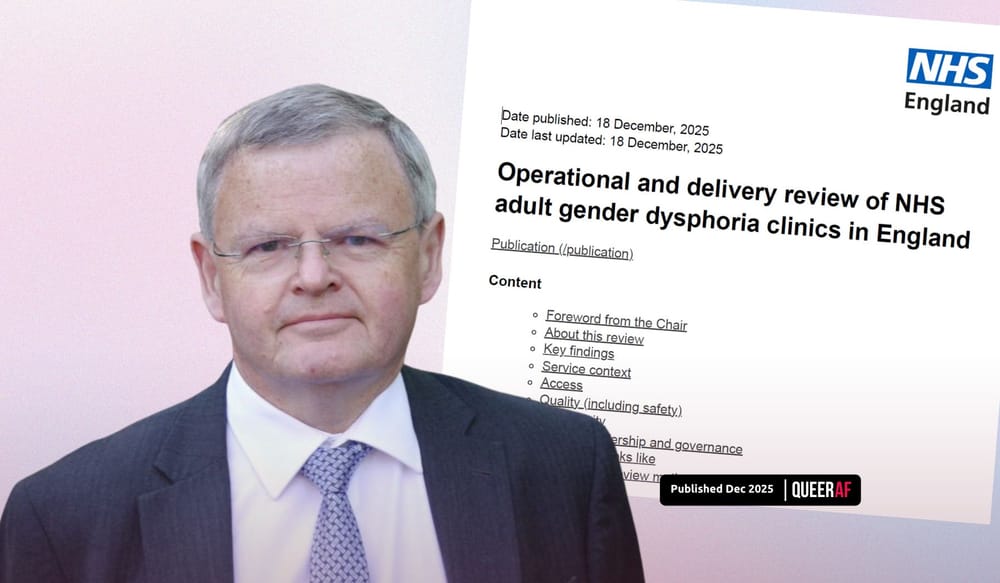
TL;DR: The Council of Europe warned the UK about excluding trans people from public spaces this week, prompting two trans activist groups to ask Europe to reopen its monitoring of British gender recognition law. The next day, the equalities watchdog took down its interim advice for businesses about operating single-sex spaces – and then took the unusual step of pressing the equalities minister to quickly publish its new statutory guidance.
The interim opinion of the Equality and Human Rights Commission (EHRC) on how public spaces should exclude transgender people, made after April's Supreme Court ruling, was withdrawn from its website on Wednesday (15 October).
This announcement came as part of a wider statement that made the unusual step of urging equalities minister Bridget Phillipson to "act at speed" and approve the EHRC's statutory guidance, which was sent to her six weeks ago - Guardian
This intervention by the EHRC comes as domestic and international pressure is growing on Phillipson to reject the guidance. Jude Guaitamacchi, founder of the Trans+ Solidarity Alliance, said, "Bridget Phillipson needs to send this back to the EHRC and tell them that they need to produce a code of practice which outlines how to include trans people in services for their lived gender, not try to mandate exclusion even where the service provider doesn't want this."
They added: "The government need to realise that the EHRC are not acting in good faith, but pursuing an agenda, and not let themselves get played."
The EHRC guidance, when approved, will tell businesses and other organisations how to operate single-sex services in practice, following April's For Women Scotland judgment. Before the guidance becomes statutory, businesses had been using the interim advice – the web page for which has now been replaced by the EHRC instead advising they "take specialist legal advice" - EHRC
Jess O'Thomson, trans rights lead at Good Law Project, said: "The EHRC’s exclusionary interim guidance has had a devastating impact on trans people’s lives.
"This rushed EHRC guidance has not only put trans people at serious risk, but may also have encouraged organisations to act unlawfully. Now the guidance has been withdrawn, so should the exclusionary policies that organisations rashly implemented in its aftermath. If not, they could find themselves in hot water."
Criticised by the Council of Europe
Michael O'Flaherty, the commissioner for human rights at the Council of Europe, this week warned against trans exclusion in the UK - Good Law Project
The warning came in a letter from the commissioner to the UK Parliament and the chair of the women and equalities select committee on Tuesday (14 October) about the "current climate for trans people in the UK" - Council of Europe
O'Flaherty said that the EHRC guidance currently being considered by the government, which he noted "has an important role as a guarantor of human rights", should "avoid a situation where a person’s legal gender recognition is voided of practical meaning, to the extent that it leaves trans people in an unacceptable 'intermediate zone'."
He went on to warn that "inconsistencies" between different laws, like the Gender Recognition Act and the Equality Act, "should be avoided". O'Flaherty used the case of Christine Goodwin v. the United Kingdom (2002), which is the case that forced the British government to introduce the Gender Recognition Act in 2004, to reiterate that the UK has an obligation to provide legal gender recognition for trans people as part of the right to a private life under the European Convention on Human Rights.
O'Flaherty also sent a separate letter to the government about the policing of protests in the UK following the proscription of direct-action group Palestine Action, urging the government not to unnecessarily restrict freedom of peaceful assembly and noting the large number of recent arrests of those in support of the newly banned group.
He also urged the government to "reconsider" provisions in the Crime and Policing Bill that would criminalise face coverings at protests, including at Pride events, as well as restrictions on marches near places of worship.
Goodwin, again
On Tuesday, two trans rights groups announced they are asking the Council of Europe to reopen monitoring of the UK's compliance with the historic Goodwin ruling, which says British trans people must be able to change their legal gender.
The Council of Europe stopped monitoring the UK in this regard in 2011. TACC and TEN argue that April's Supreme Court judgment exposes that the UK is not complying with its obligations to provide legal gender recognition.
Speaking on behalf of TEN from Ireland, Dr Victoria McCloud, the UK's first out trans judge, said: "Today’s formal communication to the Council of Europe by TACC and TEN marks the next of many steps in the struggle to restore the human rights of UK trans people, which have been devastated by the steps taken by or on behalf of the UK State since the notorious, and misguided, judgment in For Women Scotland v The Scottish Ministers."
"This is simply the next step in a legal struggle for freedom which will extend as long as necessary to achieve nothing short of the full restoration of the human rights and basic human dignity and safety of the trans community," she said.
The groups point to a September interview with the deputy president of the Supreme Court in which he said that "[trans] people had been led to believe by public authorities, among others, for the last 15 years that they had rights, which they didn’t have". Trans people being able to change their legal gender and be recognised as the correct legal gender in all aspects of their life was the basis on which European monitoring of Goodwin was closed, and TACC and TEN say that as such, "the UK has never been in compliance with the judgement".
Analysis: Conflict between the EHRC and the government?
This has been an eventful week for trans rights and the UK's equalities watchdog, and the dust hasn't settled yet.
While we don't know yet how it will respond, the government will be feeling the pressure not to make statutory guidance that will be likely to lead to legal headaches. It's possible that the warning from Europe will prompt the government to ask the EHRC to produce more legally sound – aka less trans-exclusionary – guidance.
There's a lot of moving parts in this story. A Whitehall source hit back at the EHRC's attempt to rush ministers, saying that the EHRC itself has yet to provide all the information needed to scrutinise the guidance, including an equalities impact assessment. And 'gender-critical' EHRC chair Baroness Falkner is due to leave her role at the end of next month.
So, there's a chance the current guidance will be rejected and rewritten, particularly given that the interim EHRC opinion is already subject to a judicial review from the Good Law Project (which Sex Matters recently sought to intervene in), due to be heard next month - Good Law Project
The right-wing press are framing this as another reason for the UK to leave the ECHR. Sir Keir Starmer has said he won't quit though he does want reform, but given his penchant for flip-flopping it's hard to say how he will act.
It likely goes without saying all of this journalism and investment in talent costs a great deal. Luckily, as the UK's only press-regulated and not-for-profit LGBTQIA+ publisher, we're well-placed to ensure every penny is put towards our long-term mission to change the media. So please, if you found this article valuable:











